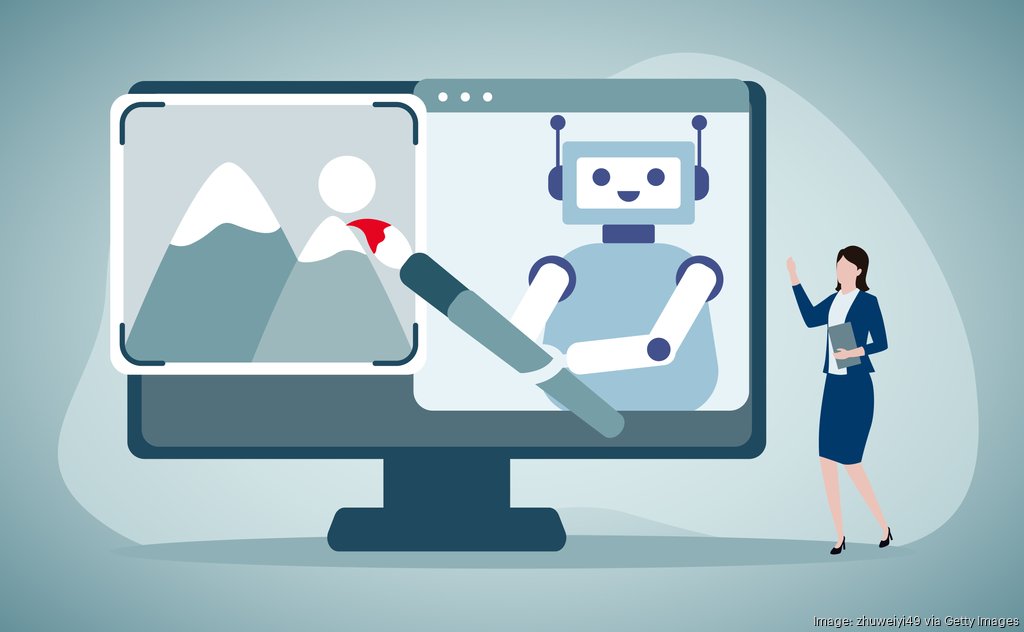
By Andy Medici
A growing number of Americans have used artificial intelligence tools like ChatGPT at work — but won’t tell their bosses because they are afraid of being replaced by the emerging technology.
As business owners across America experiment with the new wave of AI tools in hopes of boosting productivity and cutting costs, workers are increasingly on edge about those same tools.
A survey of 3,000 American workers by human resources company Checkr found 69% of workers say they are afraid to tell their managers they use AI tools at work for fear of one day being replaced by those same tools.
Listen to this article5 min
A growing number of Americans have used artificial intelligence tools like ChatGPT at work — but won’t tell their bosses because they are afraid of being replaced by the emerging technology.
As business owners across America experiment with the new wave of AI tools in hopes of boosting productivity and cutting costs, workers are increasingly on edge about those same tools.
A survey of 3,000 American workers by human resources company Checkr found 69% of workers say they are afraid to tell their managers they use AI tools at work for fear of one day being replaced by those same tools.
UPGRADE TO NATIONWIDE ACCESS
Get Industry Insights From 45+ Major Cities
PLUS ACCESS EVERY STORY FROM EVERY NEWSROOM
But they are already feeling the pressure from managers to adopt AI tools. About 79% of American workers say their managers want them to use them more at work — and the rise of ChatGPT is already been seen in job listings.
The survey also found:
- 86% of American workers said they would take a pay cut to work less if AI could help them get all of their work done.
- 79% of American workers said they are fearful or on the fence about AI leading to lower pay for people in their positions.
- 74% of American workers said they agree or are on the fence about the adoption of AI tools leading to them losing their jobs.
Baruch Labunksi, CEO at SEO marketing agency Rank Secure, recently told The Playbook some fears over AI replacing workers are legitimate — but it will depend heavily on the industry and the job function.
“For instance, those in marketing and human resources may have concerns because AI can be automated to handle many daily tasks currently handled by humans,” Labunski said.
At least one study has found using ChatGPT-related tools made at least some workers more productive.
Labunksi said employers are looking to save money, and AI is attractive because it costs comparatively little to install and maintain it without having to pay a salary and benefits.
That being said, experts say companies need to proceed with caution when it comes to utilizing AI to cut labor costs, as there are several important factors to consider that transcend the bottom line.
Checkr’s survey found workers would be more on board with AI if it meant them having to do less work.
About 57% of workers would take a pay cut for an AI-enabled four-day workweek. Overall, workers would take a pay cut if AI allowed them to work less overall, with most workers across age groups agreeing on about a 10% pay cut.
Gen Z said they would accept a 15% pay cut to work less if AI could help them do their job more efficiently.
“It is evident that the dynamics of the modern workplace are changing at an unprecedented pace,” said Sara Korolevich, head of digital content at Checkr
Korolevich said the survey underscores the potential AI holds when it comes to improving work-life balance.
Surveyed workers believe web development and programming jobs have the highest risk of layoffs due to AI, with graphic design, logistics and administrative jobs also at high risk.
About 66% of managers say they would gladly replace employees with AI tools if the work was comparable, according to a survey by Beautiful.ai of 3,000 adult Americans in management positions. Another survey of 1,000 U.S. business leaders in February by Resumebuilder.com found about 25% of companies said ChatGPT has already saved them $75,000 or more.
IBM CEO Arvind Krishna announced recently the company intends to replace nearly 8,000 jobs with AI over the next few years, with machines potentially taking over up to 30% of non-customer-facing roles in the next five years.
An April report from Goldman Sachs found the new wave of AI tools could expose about 300 million full-time jobs globally to automation over the coming years, depending on how advanced the tools become.
The high worries among workers over their jobs comes amid the explosive popularity of OpenAI’s ChatGPT, which has sparked a new rush for AI products and services.
But while there is plenty of potential for small-business owners to enhance their productivity, reduce costs and increase revenue, experts say there are plenty of risks.
Companies are already looking for workers with AI-related skills, too. Resumebuilder.com recently surveyed 1,187 business leaders and found 91% of companies that are hiring want workers with ChatGPT experience. About 30% of those say their need for ChatGPT experience is “very urgent.”


